On the afternoon of 16 December, the inaugural session of "Navigating the Mathematical Seas: Professor Tea Salon" was successfully held at the Heart-Neighbourhood Sunshine Station on the 5th floor of the Hubin 7th Dormitory's "One-Stop" Student Community. The event featured Professor Fan Huijun, Dean of the School of Mathematics and Statistics, as the distinguished speaker. Centred on the theme "Scientific Exploration and Youth Mission," Professor Fan engaged in thoughtful dialogue with attendees over tea. The salon was attended by over ten undergraduate and postgraduate students and was presided over by Ms Yuan Qi, Part-time Undergraduate Counsellor.
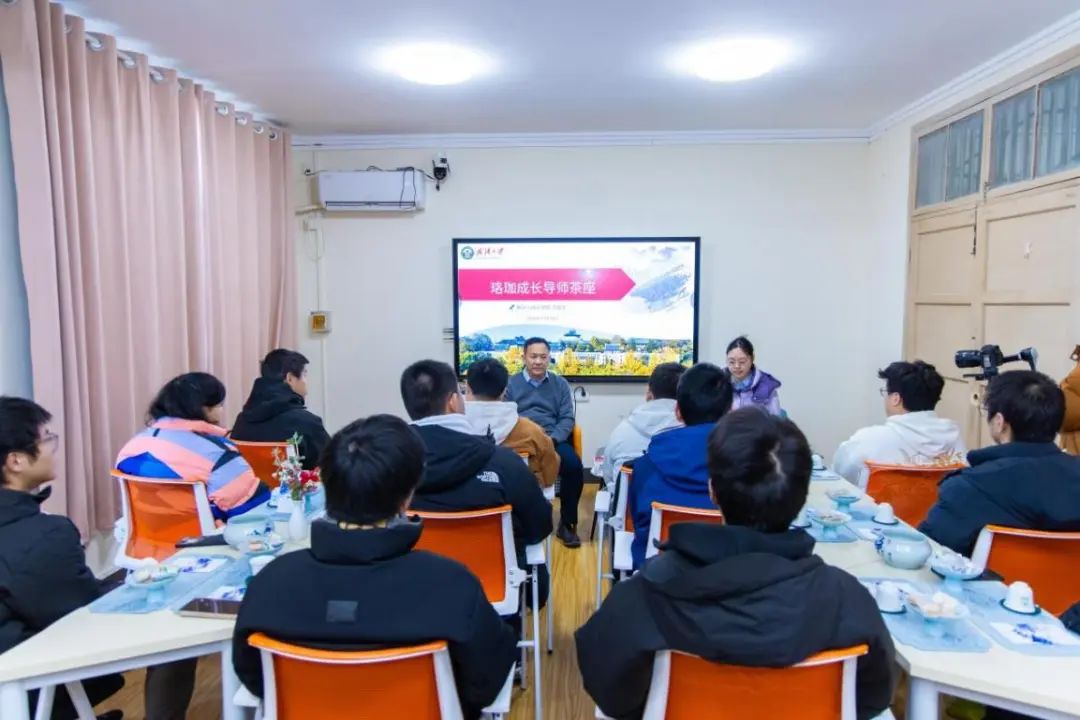
Professor Fan extended a warm welcome to the attending students. He shared his interdisciplinary academic journey, professional experiences, and life reflections, expressing not only his enduring passion for research but also his profound commitment to student development. He stated his hope that this tea salon would facilitate meaningful dialogue and provide valuable guidance to address students' inquiries.
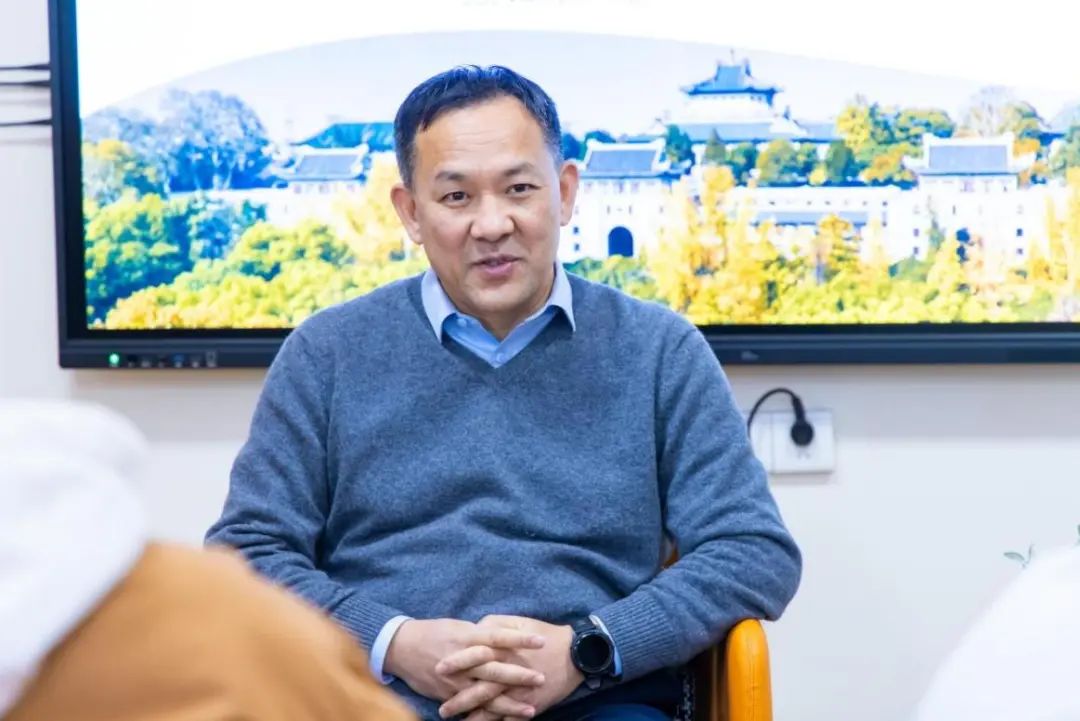
Professor Fan provided insightful guidance on comprehending fundamental mathematics and taking the "first step into scientific research." He emphasised that mastering mathematics requires precise conceptual understanding and a solid foundation built through continuous practice. Beginning with the concept of "norm," he progressively introduced and expanded upon ideas, offering students a clear pathway into abstract mathematical notions.
Through tracing the historical development of mathematics and illustrating with examples such as equations, matrices, and field extensions, Professor Fan demonstrated the achievements and challenges in fundamental mathematics via step-by-step derivation and analysis. This approach helped students recognise the strategic value of basic mathematical research and the significance of algebraic studies.
Furthermore, Professor Fan introduced the research specialisations of faculty members within the School, encouraging students to actively engage with professors and mentors to build a robust foundation for future research.
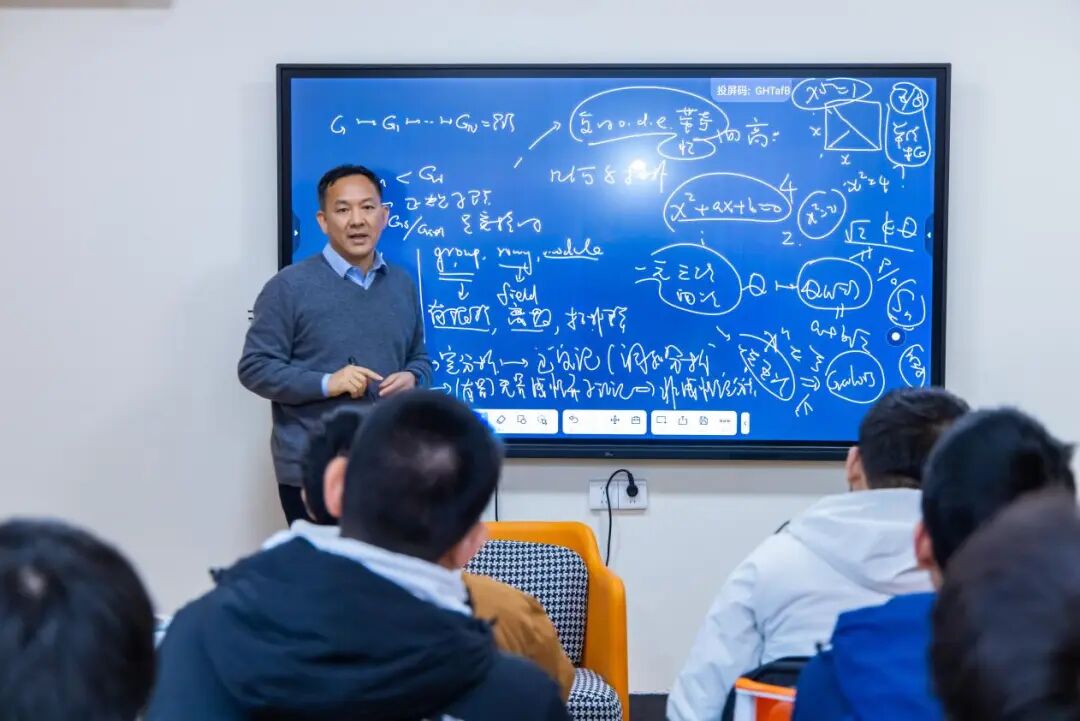
During the dialogue session, in response to students' inquiries about how to narrow the gap between China and global mathematical powerhouses, Dean Fan proposed three key recommendations:
First, young scholars must cultivate a "competitive spirit," aspiring to scale academic heights and dedicate themselves to producing higher-quality research. Second, they should immerse themselves in practical research, devoting at least five to six hours daily to concentrated engagement with mathematical problems while extensively reading academic papers by leading scholars. Finally, it is essential to set ambitious goals, recognising that becoming a top mathematician requires international engagement, broadened perspectives, and learning from others' research approaches to assimilate advanced methodologies.
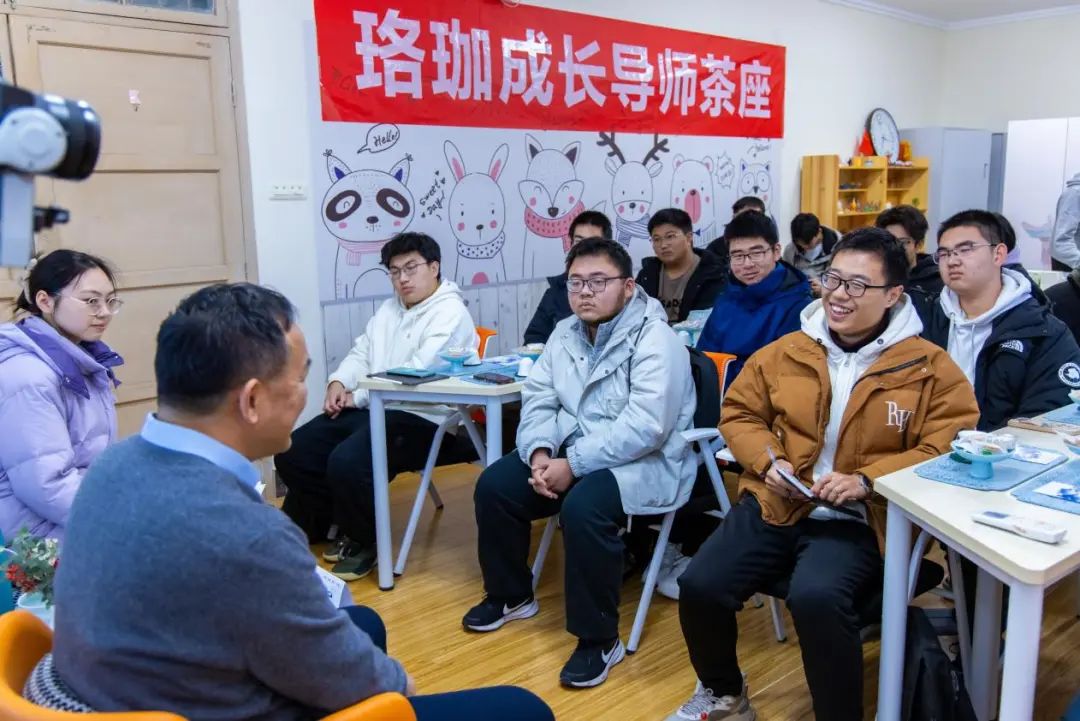
In conclusion, Professor Fan recommended Mathematics as Metaphor by the renowned Russian mathematician Yuri Manin. He noted that Manin is one of the few mathematicians to have documented his own intellectual journey, and that the book details his unique trajectory—particularly his evolution from pure mathematical inquiry toward profound philosophical contemplation. Professor Fan expressed his hope that by engaging with the narratives of distinguished mathematicians, students would develop a deeper understanding of the discipline and further contemplate its philosophical, historical, and cultural significance.
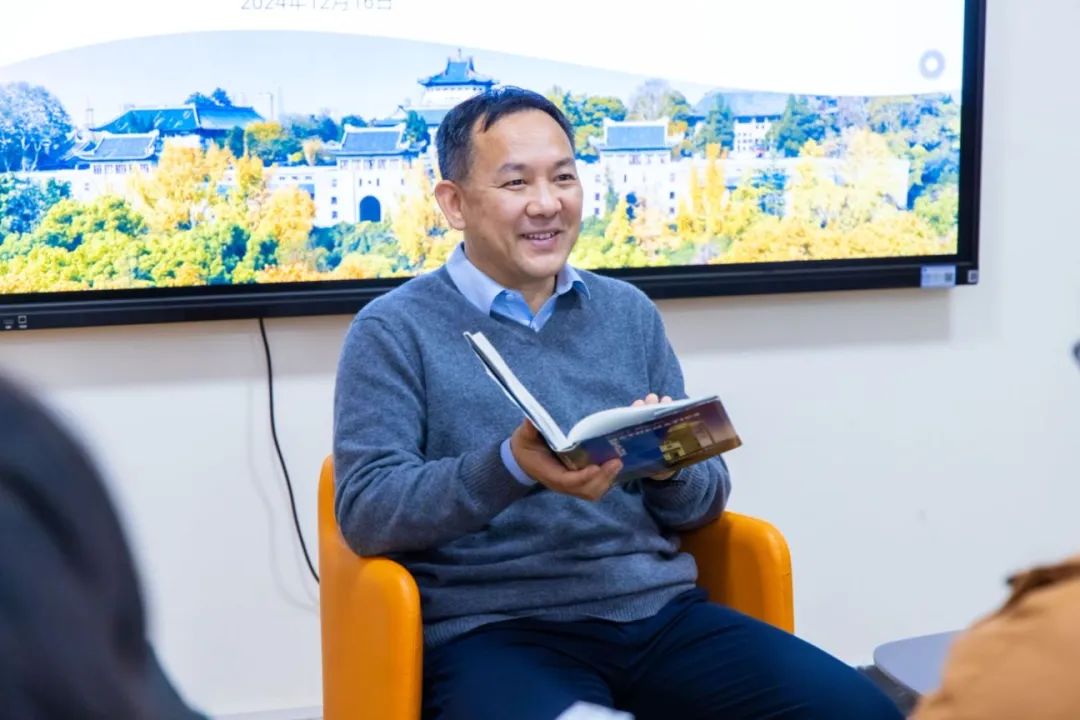
Salon Highlights: Insights from Professor Fan
·"In academic interactions, one should maintain courtesy and enthusiasm while mastering essential communication skills."
·"Equality prevails in the realm of science. Academic debate is a normal form of scholarly exchange, and truth often emerges clearer through contention."
·"When facing situations where one's work is not recognised, it is crucial to focus on the research itself rather than personal popularity."
·"To take the first step in research, one must be adept at identifying issues and examining academic work with a critical perspective."
·"As young scholars, it is important to be ambitious—aim to climb higher mountains and pursue better research."
·"Engaging in genuine academic research requires significant dedication: devote five to six hours daily to pondering mathematical problems and extensively reading scholarly articles by leading experts."
·"To excel in mathematics, one must venture out, engage in academic exchanges, and learn from the research approaches of others."